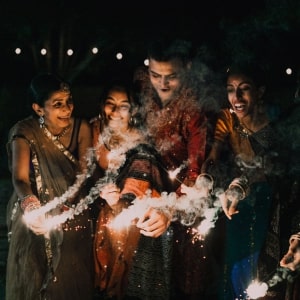Every year on February 14th, people around the world express their affection for loved ones through gifts, cards, and acts of kindness. This tradition, known as Valentine’s Day, has evolved into a globally recognized celebration of love. But why is Valentines Day celebrated? What are its origins, and what significance does it hold in today’s society?

Why is Valentines Day Celebrated?
The history of Valentine’s Day is shrouded in mystery and legend, with various accounts attributing its origins to different sources. One popular belief traces its roots back to ancient Rome, where the feast of Lupercalia was celebrated in mid-February. This pagan festival honored Lupercus, the Roman god of fertility, and was marked by rituals aimed at purifying the city and promoting health and fertility.
Another theory suggests that Valentine’s Day is named after one or more early Christian martyrs named Valentine, who were associated with acts of compassion and love. One such legend tells the story of Saint Valentine, a Roman priest who defied Emperor Claudius II’s decree against marriages for young men, believing that single men made better soldiers. Valentine continued to perform marriages in secret, but when his actions were discovered, he was sentenced to death. Before his execution, he supposedly wrote a letter to his jailer’s daughter, signing it “from your Valentine,” thus inspiring the tradition of sending love notes on Valentine’s Day.
Evolution of Valentines Day
Over time, Valentine’s Day gradually transformed from a religious observance to a secular celebration of romantic love. During the Middle Ages, the tradition of courtly love flourished in Europe, with poets and writers romanticizing the idea of chivalry and devotion. By the 18th century, exchanging handmade cards and tokens of affection on Valentine’s Day became increasingly popular among lovers in England and other parts of Europe.
In the 19th century, the Industrial Revolution paved the way for mass-produced Valentine’s Day cards, making the holiday more accessible to people of all social classes. The introduction of the postal system further fueled the exchange of valentines, leading to the widespread commercialization of the holiday.
Today, Valentine’s Day is celebrated in various ways around the world. While some people choose to express their love through gifts, flowers, and romantic dinners, others use the occasion to celebrate friendship and familial bonds. In recent years, the concept of “Galentine’s Day,” popularized by the television show “Parks and Recreation,” has gained traction, encouraging women to celebrate their female friendships on February 13th.
Significance of Valentine’s Day
Despite its commercialization, Valentine’s Day continues to hold significance as a day dedicated to expressing love and appreciation for those we care about. In a world filled with busy schedules and distractions, it serves as a reminder to pause and cherish the relationships that enrich our lives.
Moreover, the celebration of Valentine’s Day extends beyond romantic love, encompassing platonic and familial love as well. It offers an opportunity to show gratitude to friends, family members, and colleagues, strengthening bonds and fostering a sense of community.
In essence, Valentine’s Day serves as a beacon of love in a sometimes chaotic world. Whether it’s through a heartfelt card, a thoughtful gesture, or simply spending quality time together, the essence of the holiday lies in the expression of love and kindness towards others.
I hope this answers your question – Why is Valentines Day Celebrated?
Also Read: Why is Valentines Day Bad?
Talk to Astrologer
As Valentine’s Day approaches, some may seek insights from astrology to understand their relationships better or to find guidance on matters of the heart. Astrology, the study of the positions and movements of celestial bodies, has long been associated with matters of love and romance. Many believe that the alignment of the stars and planets can influence our emotions, behaviors, and compatibility with others.
For those curious about astrology’s role in love and relationships, consulting an astrologer can offer valuable insights. Astrologers analyze birth charts to uncover potential strengths and challenges in a person’s romantic life, providing guidance on how to navigate and enhance their relationships. Whether you’re single, in a committed partnership, or exploring new connections, astrology can provide a unique perspective on matters of the heart.





